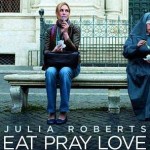 CNN’s Anderson Cooper is worked up because in the trailer for Vince Vaughn’s new movie, The Dilemma, Vaughn’s character refers to a car as being “gay.”
CNN’s Anderson Cooper is worked up because in the trailer for Vince Vaughn’s new movie, The Dilemma, Vaughn’s character refers to a car as being “gay.”
Cooper said, “We gotta do something to make those words…unacceptable, cause those words are hurting kids.”
I guess Cooper is referring to homosexual kids who might take Vaughn’s character’s use of the word “gay” in a negative context and therefore as a moral judgment of their sexual conduct.
To the extent Cooper is condemning the bullying of homosexuals I agree with him 100%, and citizens of the kingdom of God should be the first to condemn such conduct. The problem is I think Cooper is saying more. I think he’s concerned the word “gay” may take on a negative connotation.
If you’ve seen the clip from the trailer you know Vaughn’s character is not referring to a person but a car. He uses the word “gay” negatively, implying the car is effeminate, not the kind of car the average guy wants.
The irony is the homosexual community has already taken the word “gay,” a perfectly good and positive word, and, by using it synonymously with the word “homosexual,” given it a negative connotation.
Think about it. Do you ever use the word “gay” in a positive context any more? Do you ever say, “I felt so gay today,” or “I was in a such a gay mood”? The only time you see “gay” used in a positive light is in old movies, before the word was hijacked by an interest group with a public relations problem.
My point is not to pick on homosexuals. It’s not just homosexuals who have indulged in this wordplay. Heterosexuals who call adultery an “affair” are replacing a negative word with a positive one and impliedly redefining the morality of their conduct.
Anyway, that’s the point I wanted to make, you know, the irony. . . oh, and also, that words matter. Be careful how you use them. GS
 Charles Dickens’s, A Christmas Carol, is, in my book, the best Christmas story of all time, with the exception, of course, of the real Christmas story. I even included two different versions of the movie in my list of the Top 10 Christmas Movies Of All Time.
Charles Dickens’s, A Christmas Carol, is, in my book, the best Christmas story of all time, with the exception, of course, of the real Christmas story. I even included two different versions of the movie in my list of the Top 10 Christmas Movies Of All Time.



